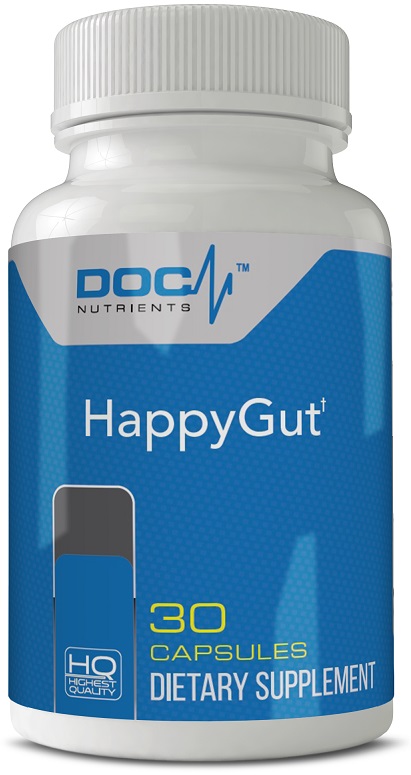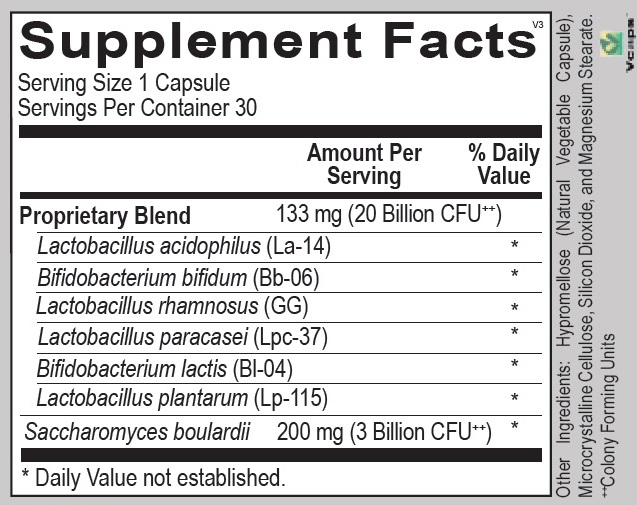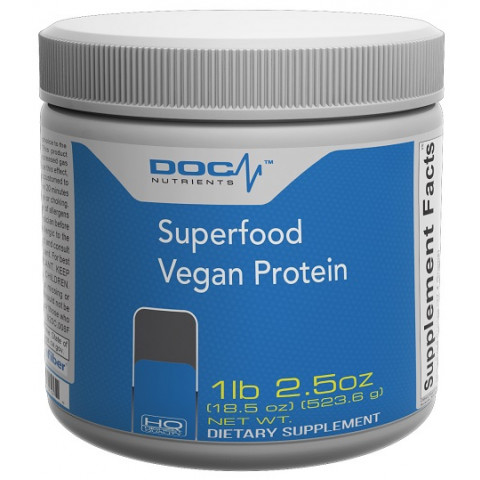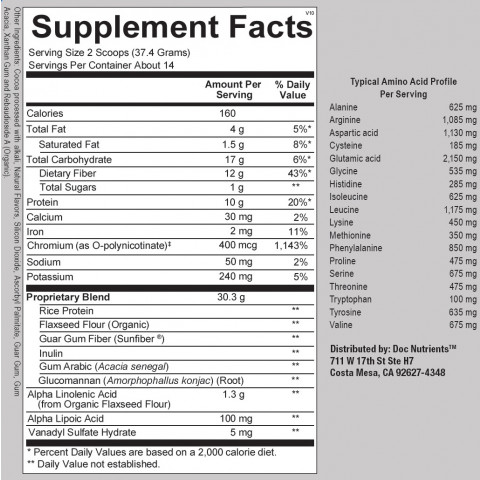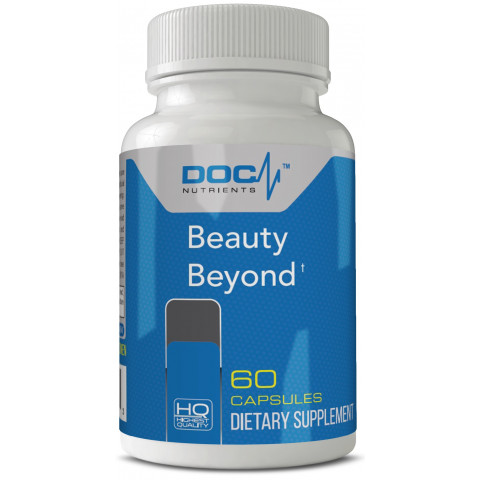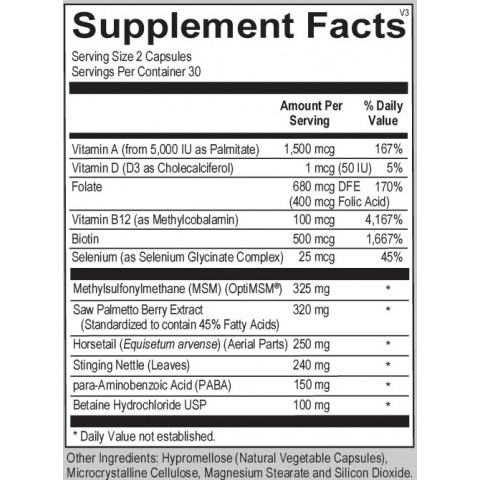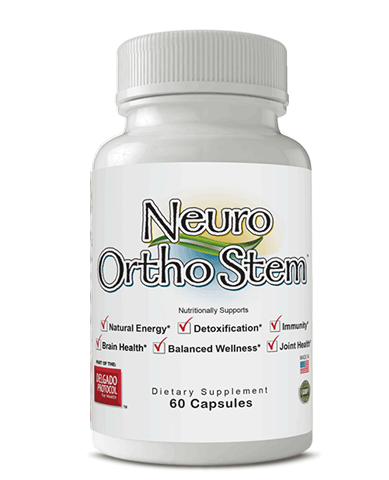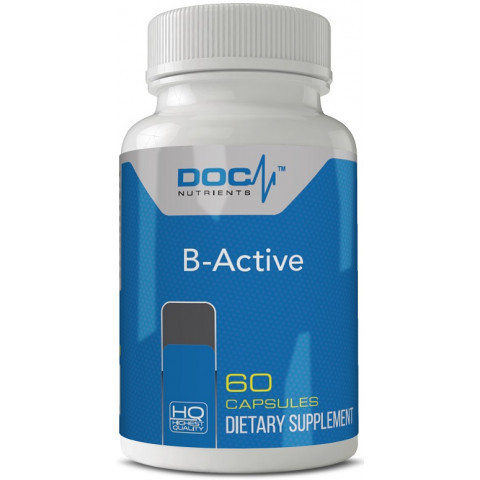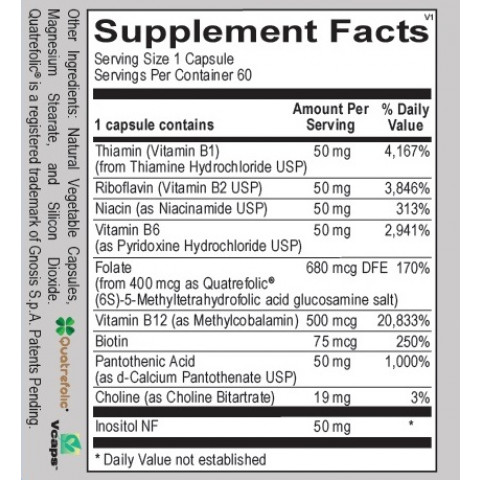Clinical research shows that maintaining optimal cardiovascular health should address multiple metabolic factors. HappyGut, a formula backed by extensive clinical research, is designed to address several factors associated with ideal cardiometabolic health. The powerful combination of berberine and alpha lipoic acid (ALA) helps maintain heart function, metabolism, antioxidant status, and lipid and glucose levels. HappyGut provides a powerful formula for those seeking to optimize the multiple mechanisms of cardiovascular and metabolic health.
Suggested Use: 3 capsules per day or as recommended by your health care professional
Lactobacillus acidophilus (La-14) is a beneficial bacterial strain that is normally found in the intestinal tract and mouth and is commercially used in dairy products for the production of acidophilus-type yogurt. L. acidophilus ferments various carbohydrates to produce lactic acid, which increases the absorption and bioavailability of minerals. This includes calcium, copper, magnesium and manganese. The production of lactic acid also promotes health by creating an inhospitable environment for invading microbes. L. acidophilus has been shown to protect intestinal cells by competing for adhesion space in the gut against harmful bacteria, such as E. coli. The L. acidophilus strain in Ortho Biotic has been specifically chosen because of its strong adherence and survival attributes in the GI tract. It has been demonstrated in vitro to tolerate exposure to gastric acid and bile salts, and has the ability to withstand antibiotics including Ciproflaxin, Polymyxin B and Tetracycline.
Lactobacillus paracasei (Lpc-37) has been shown to protect against the harmful effects of bacteria such as Staphylococcus aureus (S. aureus). L. paracasei colonizes the intestinal tract by reinforcing defense mechanisms that support an immune response. It does this by supporting T-helper cell production and secreting secretory IgA (sIgA), an antibody critical for supporting intestinal immunity. L. paracasei Lpc-37 is a gastric acid-resistant strain and has been shown in vitro to withstand antibiotics such as Ciproflaxin and Vancomycin.
Bifidobacterium bifidum (Bb-02) has been shown to effectively compete with harmful bacteria such as E. coli, S. aureus and Camplylobacter jejuni, which suggests B. bifidum’s lactic acid and acetic acid production provides an antagonistic action against pathogens to help maintain microflora balance.
Bifidobacterium lactis (BI-04) is predominantly found in the colon. A double-blind, randomized placebo-controlled trial on subjects receiving B. lactis or placebo for eight weeks found that B. lactis supported a balanced immune response in individuals hypersensitive to environmental allergens. Studies examining immune development and dietary supplementation with B. lactis have shown that it supports GI health by reducing intestinal permeability.
Lactobacillus plantarum (Lp-115) is a beneficial bacteria commonly found in fermented foods including sauerkraut, pickles, brined olives and sourdough. L. plantarum has been found to compete against strains of Clostridium difficile and Clostridium perfringens, due to the production of bacteriocins (lethal proteins) that inhibit bacterial growth. Studies have also demonstrated that L. plantarum helps boost the immune response by stimulating Th1-mediated immunity.
Lactobacillus rhamnosus (GG) has been proven to have remarkable survivability in the acid and bile environments in the GI tract. L. rhamnosus is particularly useful because of its ability to adhere to cells, enhance microflora balance, and inhibit pathogen adherence. L. rhamnosus was also found to positively affect inflammatory and immune gene signaling of over 1,700 genes when administered in high doses.
Saccharomyces boulardii is a probiotic yeast that was first isolated from the skin of the tropical fruits lychee and mangosteen in 1923 by French scientist Henri Boulard, following the observation that mangosteen consumption controlled occasional diarrhea in natives of Southeast Asia. S. boulardii plays a role in supporting immune defense by increasing levels of sIgA, creating a first line of defense that helps bind and clear harmful bacteria.
Suggested Use: 3 capsules per day or as recommended by your health care professional
Lactobacillus acidophilus (La-14) is a beneficial bacterial strain that is normally found in the intestinal tract and mouth and is commercially used in dairy products for the production of acidophilus-type yogurt. L. acidophilus ferments various carbohydrates to produce lactic acid, which increases the absorption and bioavailability of minerals. This includes calcium, copper, magnesium and manganese. The production of lactic acid also promotes health by creating an inhospitable environment for invading microbes. L. acidophilus has been shown to protect intestinal cells by competing for adhesion space in the gut against harmful bacteria, such as E. coli. The L. acidophilus strain in Ortho Biotic has been specifically chosen because of its strong adherence and survival attributes in the GI tract. It has been demonstrated in vitro to tolerate exposure to gastric acid and bile salts, and has the ability to withstand antibiotics including Ciproflaxin, Polymyxin B and Tetracycline.
Lactobacillus paracasei (Lpc-37) has been shown to protect against the harmful effects of bacteria such as Staphylococcus aureus (S. aureus). L. paracasei colonizes the intestinal tract by reinforcing defense mechanisms that support an immune response. It does this by supporting T-helper cell production and secreting secretory IgA (sIgA), an antibody critical for supporting intestinal immunity. L. paracasei Lpc-37 is a gastric acid-resistant strain and has been shown in vitro to withstand antibiotics such as Ciproflaxin and Vancomycin.
Bifidobacterium bifidum (Bb-02) has been shown to effectively compete with harmful bacteria such as E. coli, S. aureus and Camplylobacter jejuni, which suggests B. bifidum’s lactic acid and acetic acid production provides an antagonistic action against pathogens to help maintain microflora balance.
Bifidobacterium lactis (BI-04) is predominantly found in the colon. A double-blind, randomized placebo-controlled trial on subjects receiving B. lactis or placebo for eight weeks found that B. lactis supported a balanced immune response in individuals hypersensitive to environmental allergens. Studies examining immune development and dietary supplementation with B. lactis have shown that it supports GI health by reducing intestinal permeability.
Lactobacillus plantarum (Lp-115) is a beneficial bacteria commonly found in fermented foods including sauerkraut, pickles, brined olives and sourdough. L. plantarum has been found to compete against strains of Clostridium difficile and Clostridium perfringens, due to the production of bacteriocins (lethal proteins) that inhibit bacterial growth. Studies have also demonstrated that L. plantarum helps boost the immune response by stimulating Th1-mediated immunity.
Lactobacillus rhamnosus (GG) has been proven to have remarkable survivability in the acid and bile environments in the GI tract. L. rhamnosus is particularly useful because of its ability to adhere to cells, enhance microflora balance, and inhibit pathogen adherence. L. rhamnosus was also found to positively affect inflammatory and immune gene signaling of over 1,700 genes when administered in high doses.
Saccharomyces boulardii is a probiotic yeast that was first isolated from the skin of the tropical fruits lychee and mangosteen in 1923 by French scientist Henri Boulard, following the observation that mangosteen consumption controlled occasional diarrhea in natives of Southeast Asia. S. boulardii plays a role in supporting immune defense by increasing levels of sIgA, creating a first line of defense that helps bind and clear harmful bacteria.


